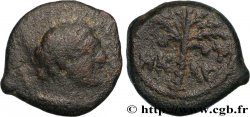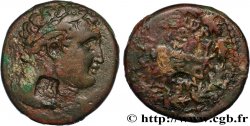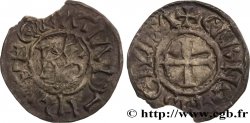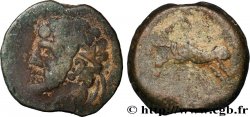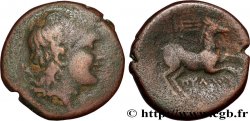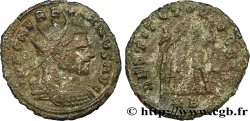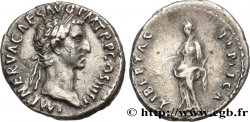Live auction - bgr_921891 - PHOENICIA - TYRE Tétradrachme ou shekel
You must signin and be an approved bidder to bid, LOGIN TO BID. Accounts are subject to approval and the approval process takes place within 48 hours. Do not wait until the day a sale closes to register. Clicking on "BID" constitutes acceptance of the terms of use of cgb.fr private live auctions.
Bids must be placed in whole Euro amounts only. The sale will start closing at the time stated on the item description; any bids received at the site after the closing time will not be executed. Transmission times may vary and bids could be rejected if you wait until the last second. For further information check the Live auction FAQ
All winning bids are subject to a 18% buyer’s fee.
All winning bids are subject to a 18% buyer’s fee.
| Estimate : | 980 € |
| Price : | 1 050 € |
| Maximum bid : | 1 100 € |
| End of the sale : | 24 September 2024 14:33:12 |
| bidders : | 2 bidders |
Type : Tétradrachme ou shekel
Date: an 29
Mint name / Town : Phénicie, Tyr
Metal : silver
Diameter : 28,5 mm
Orientation dies : 1 h.
Weight : 14,31 g.
Rarity : R1
Coments on the condition:
Monnaie sur un flan large, centré des deux côtés. Très belle tête de Melqart. Revers agréable. Patine grise avec de légers reflets dorés
Catalogue references :
Obverse
Obverse legend : ANÉPIGRAPHE.
Obverse description : Tête de Melqart (Héraklès) laurée à droite.
Reverse
Reverse description : Aigle debout à gauche, les serres sur une proue de navire, une palme sur l’aile ; dans le champ à gauche, une massue ; dans le champ à droite, un monogramme.
Reverse legend : TUROU IERIAS - KAI ASULOU/ QK/ (HAR)
Reverse translation : (Tyr sainte et asile “sacrée”, an 29).








 Report a mistake
Report a mistake Print the page
Print the page Share my selection
Share my selection Ask a question
Ask a question Consign / sell
Consign / sell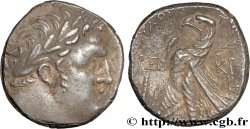
 Full data
Full data